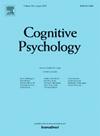跨期选择中的延迟偏好:早或晚,还是快或慢?
IF 3
2区 心理学
Q1 PSYCHOLOGY
引用次数: 0
摘要
跨期选择通常被认为是关于是早还是晚过得更好的决定。作为这一点的反映,大多数关于这一主题的实验研究都局限于单一日期结果之间的选择:一个早一点,另一个晚一点。然而,即使是这些决策,也可以用不同的方式来理解:在一个累积得更快的选项和一个累积得更慢的选项之间做出选择。为了从经验上区分这两种解释,实验设计必须包括具有多个日期结果的选项,即结果序列。我们报告了一个实验,其中包括涉及结果序列的选择,以及单一日期结果之间的选择,其中结果是金钱损失或支付。这种设计允许我们评估早晚模型和快或慢模型预测单次支付选择的能力,一旦根据支付序列选择进行校准(模型泛化性)。此外,人们对损失时间的偏好差异很大,我们通过评估模型将从支付序列选择中推断出的多次支付的时间偏好与单次支付的时间偏好联系起来的能力,将其转化为我们的优势,如在单次支付选择中观察到的(参数泛化性)。为此,我们发展了经典的结构效度评价标准收敛效度和判别效度作为模型效度评价标准。完全贝叶斯分析的结果强烈支持“快或慢”模型,而不是“早晚”模型。本文章由计算机程序翻译,如有差异,请以英文原文为准。
Delay preference in intertemporal choice: Sooner or later OR faster or slower?
Intertemporal choices are conventionally conceived as decisions about whether to be better off sooner or later. As a reflection of this, most experimental research on the topic has been restricted to choices between single-dated outcomes: One sooner, the other later. Even these decisions, however, can be conceived in a different way: As choices between an option that accumulates faster to its total outcome, and an option that accumulates more slowly to its total outcome. To empirically distinguish between these two interpretations, the experimental design must include options with multiple-dated outcomes, that is, outcome sequences. We report an experiment that includes choices involving outcome sequences as well as choices between single-dated outcomes, where the outcomes are monetary losses, or payments. This design allows us to evaluate a sooner-or-later model and a faster-or-slower model on their ability to predict single-payment choices once calibrated on payment-sequence choices (model generalizability). Moreover, people differ considerably in their preferences for the timing of losses, which we turn to our advantage by evaluating the models on their ability to associate preferences for the timing of multiple payments, as inferred from payment-sequence choices, with preferences for the timing of a single payment, as observed in single-payment choices (parameter generalizability). For that purpose, we develop the classic criteria of convergent validity and discriminant validity in the assessment of construct validity as criteria in the assessment of model validity. The results of a fully Bayesian analysis strongly favored the faster-or-slower model over the sooner-or-later model.
求助全文
通过发布文献求助,成功后即可免费获取论文全文。
去求助
来源期刊

Cognitive Psychology
医学-心理学
CiteScore
5.40
自引率
3.80%
发文量
29
审稿时长
50 days
期刊介绍:
Cognitive Psychology is concerned with advances in the study of attention, memory, language processing, perception, problem solving, and thinking. Cognitive Psychology specializes in extensive articles that have a major impact on cognitive theory and provide new theoretical advances.
Research Areas include:
• Artificial intelligence
• Developmental psychology
• Linguistics
• Neurophysiology
• Social psychology.
 求助内容:
求助内容: 应助结果提醒方式:
应助结果提醒方式:


